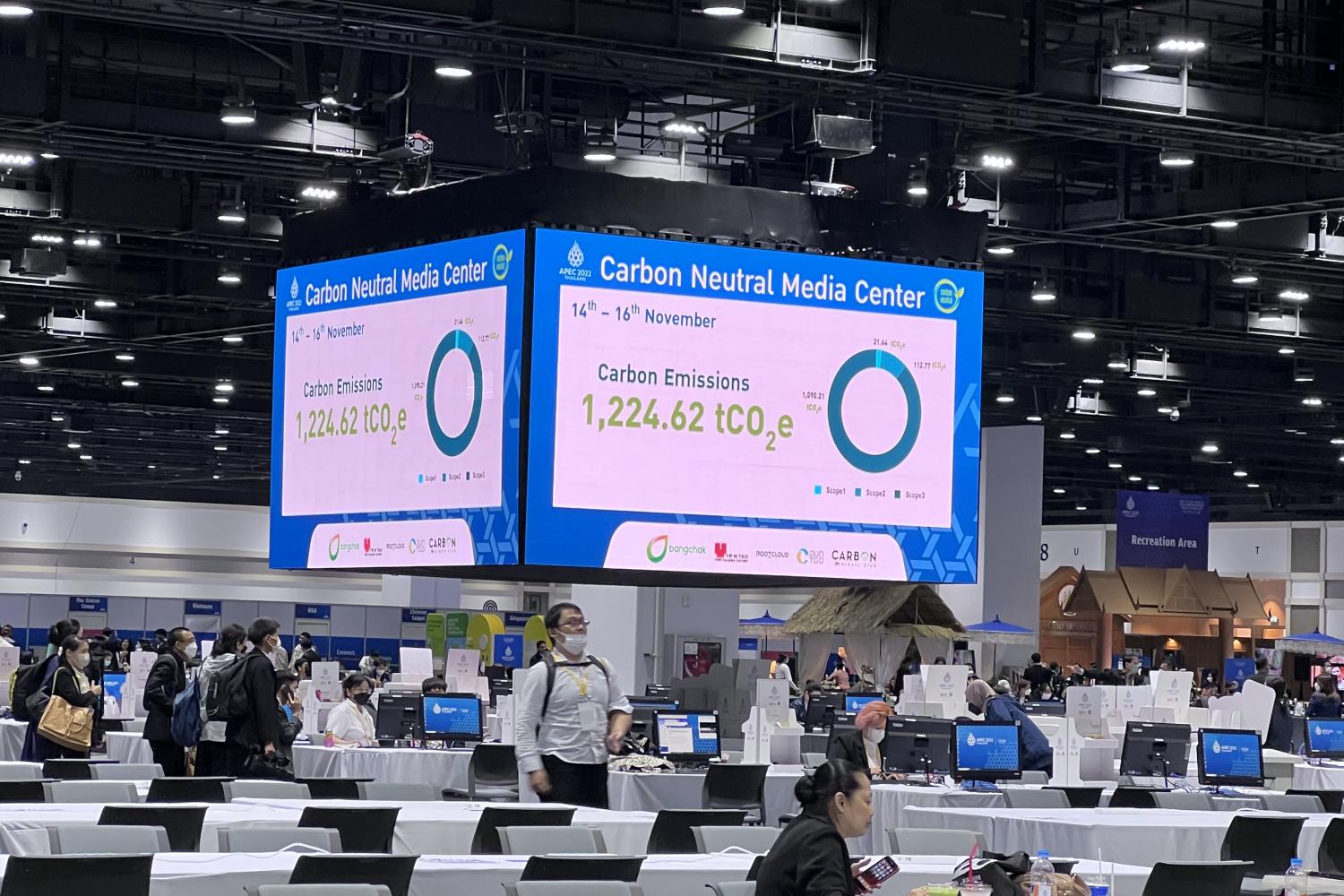
Energy conglomerate Bangchak Corporation Plc (BCP) is using the Apec summit to showcase the country's efforts to cut carbon dioxide emissions by setting a carbon neutrality target for the Bangkok conference.
The company wants to balance carbon dioxide emissions from activities related to the meeting with the amount of carbon dioxide absorbed by its environmental projects.
The move is in line with the sustainable goal set under the government's bio-, circular and green (BCG) economic development model, which is a focus of the two-day meeting of 21 economic leaders and members of the Asia-Pacific Economic Cooperation (Apec).
The summit starts on Friday.
BCP expects total carbon dioxide emissions from activities related to the Apec summit to reach 2,500 tonnes of carbon dioxide equivalent (tco2e) between Nov 14 and 19, said Gloyta Nathalang, BCP's executive vice-president for corporate branding, communication and sustainability activation.
"Over the past three days, we've already recorded up to 1,124.34 tco2e from various activities, ranging from travellers coming from abroad to preparing meals for participants," she said.
Foreign members of the media travelling to the event were also included in the calculation.
BCP is cooperating with state agencies and business partners, including Yip In Tsoi & Co, Rootcloud and the Thailand Greenhouse Gas Management Organization, to cut carbon dioxide emissions.
The company plans to absorb carbon dioxide through its carbon credits as well as via the renewable energy certificate or REC scheme, which supports greater use of clean energy.
Carbon credits refer to the amount of greenhouse gas reduction generated by environmental projects, which can be traded by companies to offset the carbon dioxide they release into the earth's atmosphere.
REC is an economic incentive aimed at encouraging power plant owners to produce electricity from clean fuels. Each REC certifies that the bearer generates one megawatt-hour (MWh) from renewable energy resources, which can be traded as an energy commodity.
BCP supports the government's campaigns to fight global warming, including the "Care the Bear" project, which encourages businesses to join hands in reducing greenhouse gases. The company has launched several projects to promote clean energy, including a push for the use of electric motorcycles.
Chaiwat Kovavisarach, chief executive of BCP, said earlier the firm plans to increase the proportion of its investment in renewable energy to 50% of its total investment budget by 2030, up from 30% at present.
BCP earlier announced plans to achieve carbon neutrality and net-zero goals by 2030 and 2050, respectively, which is faster than the time frame set by the Thai government. Bangkok set 2050 as a target for carbon neutrality and 2065 for the net-zero goal.
Carbon neutrality refers to the balance between carbon dioxide emissions and absorption, while the net-zero target is a campaign to strike a balance between greenhouse gas emissions and absorption.
